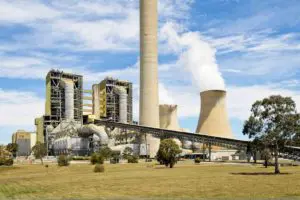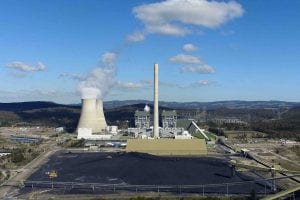Federal resources minister Keith Pitt has repeated his call for a parliamentary inquiry into the “blacklisting” of coal and gas projects by insurers and investors, saying the decisions by the insurance and financing to limit their exposure to the fossil fuel industry is potentially illegal.
Pitt, a Queensland LNP MP, has proposed a parliamentary inquiry into the moves being made by insurance companies to avoid fossil fuel projects, although Pitt has himself advocated for boycotts, urging ANZ Bank customer to switch after ANZ announced that it would incorporate climate change considerations in its investment decisions.
“I would encourage Australians, particularly those in the regions who feel let down by ANZ’s decision, to look around for a better deal,” Pitt said in October.
Speaking to the ABC’s RN Breakfast program on Monday, Pitt said that the parliamentary inquiry was justified as businesses in Queensland had told the resources ministers that they had difficulties securing products like insurance or finance when working in fossil fuel projects.
“What came through very clearly – mum and dad businesses all the way through to very, very big companies – are having trouble getting, firstly, insurance, if they work in the resources sector and secondly, finance. Now I don’t think that that should continue,” Pitt told the ABC.
Pitt said that he had referred the issue of ‘blacklists’ to the federal parliament’s Joint Standing Committee on Trade and Investment Growth and expected the committee to decide this week whether the issue will be considered through a formal inquiry.
“Given the strong contribution of Australia’s resources sector to our national economy, the rate of decline and increasing prevalence of this trend across all financial institutions — banking, insurance and superannuation — this issue is a matter of national significance,” Pitt said in a letter to the committee.
Pitt has called on the committee to examine whether insurance products should be designated an ‘essential service’ to prevent insurance providers from altogether denying the issuing of insurance policies to companies engaged in the fossil fuel sector.
Several major financial groups, including Australia’s largest banks and superannuation funds, have introduced new policies to manage and reduce their exposure to the fossil fuel industry. In part, these moves have been motivated by customer pressure to distance themselves from industries contributing to worsening climate change but has also been partly motivated by the fact that the fossil fuel industry is perceived to be a riskier industry.
Investor groups have warned that climate change poses a direct threat to some infrastructure projects due to more extreme weather events, as well as a ‘transitional risk’ which considers the potential for some investments, like coal and gas projects, to become stranded assets due to a global transition to cleaner energy sources.
High profile projects, like the Adani Group’s Carmichael coal mine, have also been the subject of intense environmental campaigns that have placed pressure on banks and insurance companies to declare that they will not work with the project.
The Morrison government has made clear that it would look to defend the fossil fuel industry from boycotts and sanctions that are motivated by concerns about contributions to global warming.
Prime minister Scott Morrison told the Queensland Resources Council in November last year that the government would look to move to protect the industry from ‘secondary boycotts’, which have placed pressure on banks, contractors and insurance companies to withhold their services from fossil fuel projects.
“They are targeting businesses of all sizes, including small businesses, like contracting businesses in regional Queensland. It is a potentially more insidious threat to the Queensland economy and jobs and living standards than a street protest,” Morrison told the Queensland Resources Council.
“It is a potentially more insidious threat to the Queensland economy and jobs and living standards than a street protest.”







